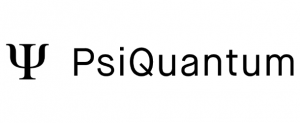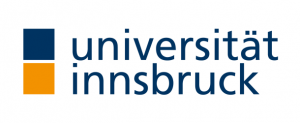Quantum News Briefs July 25: PsiQuantum to build first US-based utility-scale quantum computer in Chicago • Quantum Transistors secures €17.5M from EIC to scale quantum computing R&D • University of Innsbruck advances hybrid quantum solutions for HPC clusters •

News Briefs:
PsiQuantum to build first US-based utility-scale quantum computer in Chicago, Illinois
 PsiQuantum today announced a far-reaching partnership with the State of Illinois, Cook County, and the City of Chicago to build the first US-based utility-scale, fault-tolerant quantum computer at the former US Steel South Works property in the City of Chicago. Under this agreement PsiQuantum will anchor the newly established Illinois Quantum and Microelectronics Park (IQMP) which will catalyze the state’s highly developed quantum ecosystem, including the University of Illinois Urbana-Champaign (UIUC), the University of Chicago, the Chicago Quantum Exchange, Argonne and Fermi national labs and DARPA, the US Department of Defense’s Advanced Research Project Agency and others.
PsiQuantum today announced a far-reaching partnership with the State of Illinois, Cook County, and the City of Chicago to build the first US-based utility-scale, fault-tolerant quantum computer at the former US Steel South Works property in the City of Chicago. Under this agreement PsiQuantum will anchor the newly established Illinois Quantum and Microelectronics Park (IQMP) which will catalyze the state’s highly developed quantum ecosystem, including the University of Illinois Urbana-Champaign (UIUC), the University of Chicago, the Chicago Quantum Exchange, Argonne and Fermi national labs and DARPA, the US Department of Defense’s Advanced Research Project Agency and others.
The Illinois state budget for the fiscal year 2025 includes $500M committed to the development of the Quantum Park, including $200M for the build-out of a Cryogenic Plant to serve the cooling needs for PsiQuantum and other potential users. PsiQuantum will be the anchor tenant of the site with its Quantum Computer Operations Center spanning over 300,000 square feet and additional acreage for future expansion. PsiQuantum has also agreed with the State, Cook County, and the City of Chicago to a comprehensive package of incentives totaling more than $500M over 30 years to enable the company to rapidly move towards the build-out and commissioning of the Quantum Computing Operations Center
MIT Technology headlined the July 25 announcement as “PsiQuantum plans to build the biggest quantum computing facility in the US”.
Quantum Transistors secures €17.5M from EIC to scale quantum computing R&D
 Quantum Transistors, a pioneer in advanced quantum processor development, has been awarded up to €17.5 million by the European Innovation Council (EIC) as per the July 24 news release. Quantum Transistors received an initial grant from the EIC Accelerator of €2.5 million combined with a future equity investment of €15 million through the EIC Fund.
Quantum Transistors, a pioneer in advanced quantum processor development, has been awarded up to €17.5 million by the European Innovation Council (EIC) as per the July 24 news release. Quantum Transistors received an initial grant from the EIC Accelerator of €2.5 million combined with a future equity investment of €15 million through the EIC Fund.
This substantial investment, the largest in the latest EIC accelerator funding round, underscores Quantum Transistor’s commitment to making quantum computing scalable and accessible. Out of 969 companies that submitted full proposals, Quantum Transistors stood out among 68 others selected for funding. The company will use the investment to scale-up its R & D and expand its growing team.
Quantum Transistors is addressing quantum computing’s challenges by developing an integrated universal quantum processor on a single chip. This technology aims to boost computational power and facilitate deployment in standard data centers, which is expected to significantly cut costs and infrastructure requirements. Native photonics is a crucial aspect of the company’s approach, as each qubit is photonically connected, eliminating inter-qubit noise caused by proximity. This not only enhances computational power, but also allows for deployment in standard data centers – significantly reducing costs and eliminating the need for massive mainframes.
University of Innsbruck advances hybrid quantum solutions for HPC clusters
 Researchers and developers at the University of Innsbruck and AQT have been investigating the integration of a quantum computer into an HPC environment in the context of the FFG-funded project HPQC. Building on top of standardized interfaces for quantum computers, the team in Innsbruck successfully interfaced the UIBK-operated computing cluster “LEO5” with the “IBEX Q1” quantum computer at AQT. The respective work sets the stage for future research and development on quantum-enabled solutions within heterogeneous infrastructures, according to July 24 article from University of Innsbruck.
Researchers and developers at the University of Innsbruck and AQT have been investigating the integration of a quantum computer into an HPC environment in the context of the FFG-funded project HPQC. Building on top of standardized interfaces for quantum computers, the team in Innsbruck successfully interfaced the UIBK-operated computing cluster “LEO5” with the “IBEX Q1” quantum computer at AQT. The respective work sets the stage for future research and development on quantum-enabled solutions within heterogeneous infrastructures, according to July 24 article from University of Innsbruck.
“The successful integration of a quantum computer into a high-performance computing environment marks a significant milestone for Austrian and European research and technology development. This opens up completely new possibilities for mastering complex scientific and industrial challenges and shaping the future of computing. This project impressively demonstrates the innovative strength and technological lead that we can achieve in our country and shows the enormous potential and independence of the EU in quantum technologies. The FFG is proud to support this pioneering development,” said Henrietta Egerth, Managing Director of the FFG.
The infrastructure is currently operated and extended in the context of the HPQC project, focusing on the demonstration of hybrid quantum solutions. Consortium partners such as Math.Tec GmbH in Vienna, or the research group around Prof. Ivona Brandić at the TU Vienna, can directly access and execute computations in this hybrid HPC-QC framework.
Qrypt awarded SBIR Phase 1 contract by AFWERX for quantum hardening of Mattermost Secure Chat
 Qrypt announced in a July 23 news release that it has been selected by AFWERX for a SBIR Phase 1 focused on quantum hardening of Mattermost secure chat to address ChatOps data privacy and encryption, a mission imperative for the Department of the Air Force (DAF).
Qrypt announced in a July 23 news release that it has been selected by AFWERX for a SBIR Phase 1 focused on quantum hardening of Mattermost secure chat to address ChatOps data privacy and encryption, a mission imperative for the Department of the Air Force (DAF).
The Air Force Research Laboratory and AFWERX have partnered to streamline the Small Business Innovation Research (SBIR) and Small Business Technology Transfer (STTR) process by accelerating the small business experience through faster proposal to award timelines, changing the pool of potential applicants by expanding opportunities to small business and eliminating bureaucratic overhead by continually implementing process improvement changes in contract execution.
The United States Department of Air Force, U.S. Space Force, and the Department of Defense Platform One all use Mattermost for chat communications. Based on this public knowledge, Qrypt developed a cryptographic enhancement plug-in for Mattermost that utilizes a one-time pad (OTP) cipher to encrypt Mattermost chat sessions. OTP is an information-theoretic secure cryptosystem.
This SBIR Phase 1 Award leverages Qrypt’s core technologies, including Qrypt’s Quantum Secure Key Generation technology (BLAST) and Qrypt’s Quantum Random Number Generators created in cooperation with Los Alamos and Oak Ridge National Laboratories. Qrypt’s Mattermost plug-in provides additional cryptographic hardening, ensuring the protection and integrity of chat communications against current and future attacks.



















